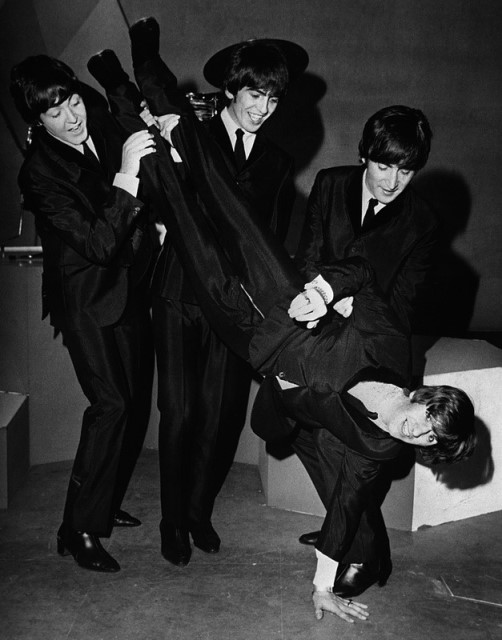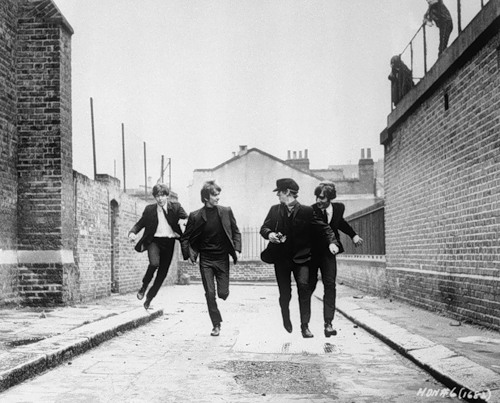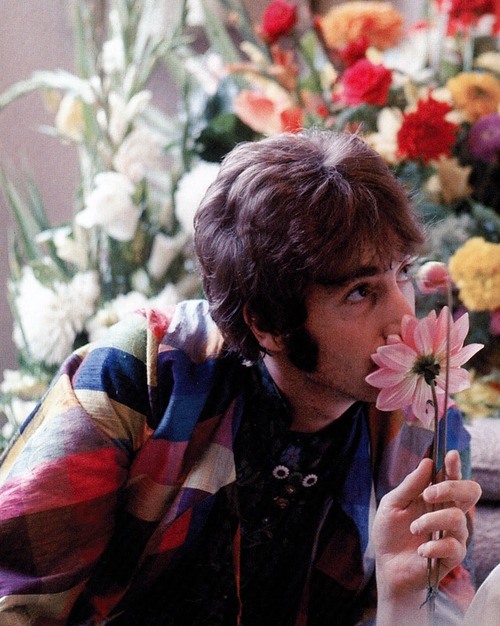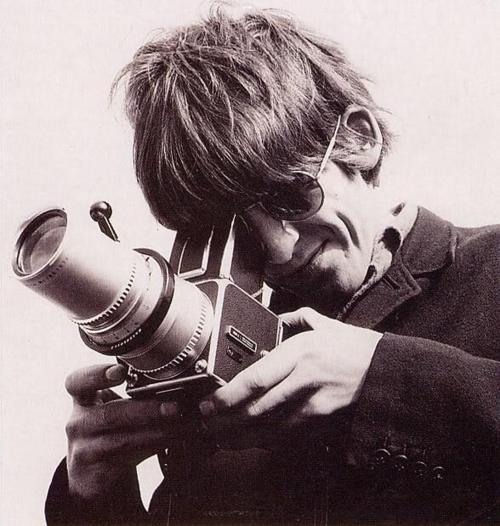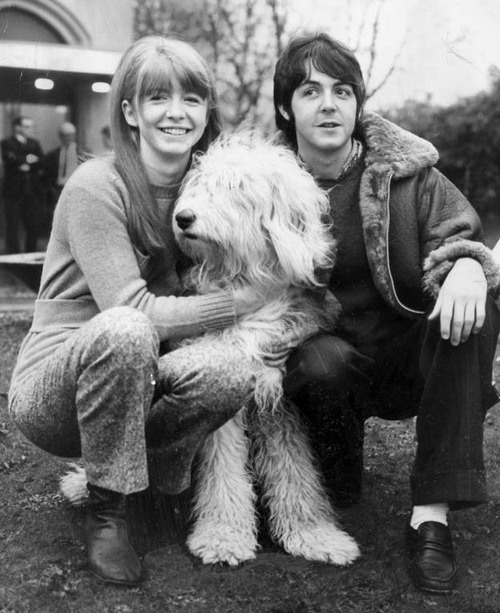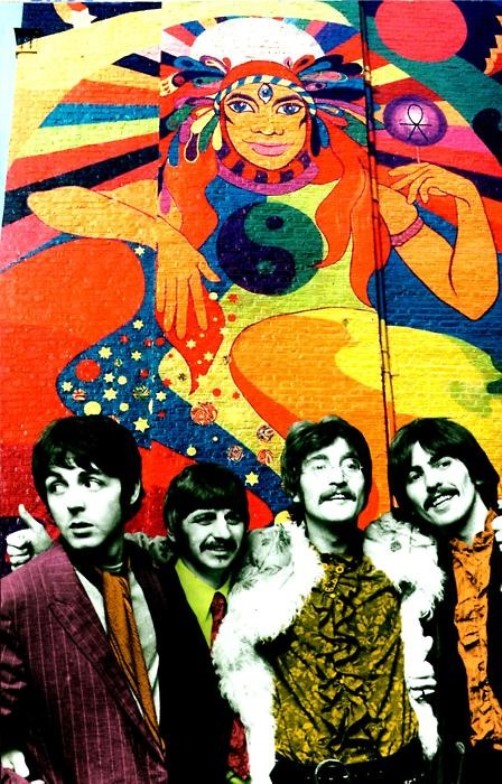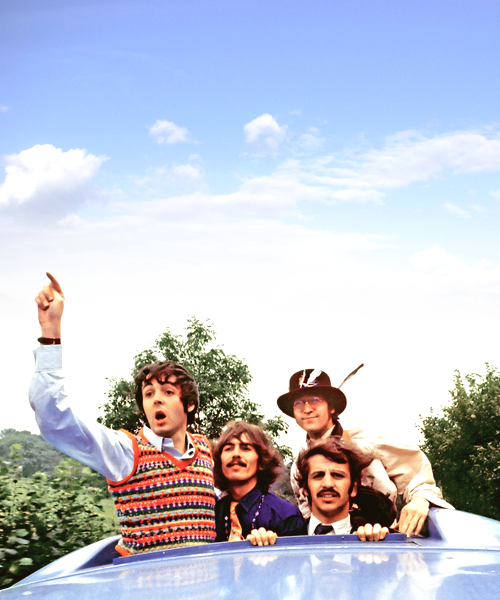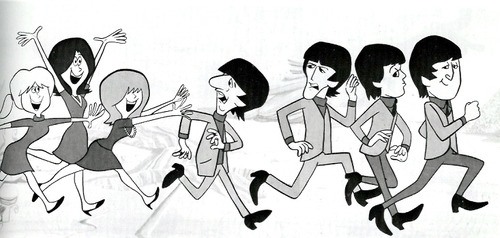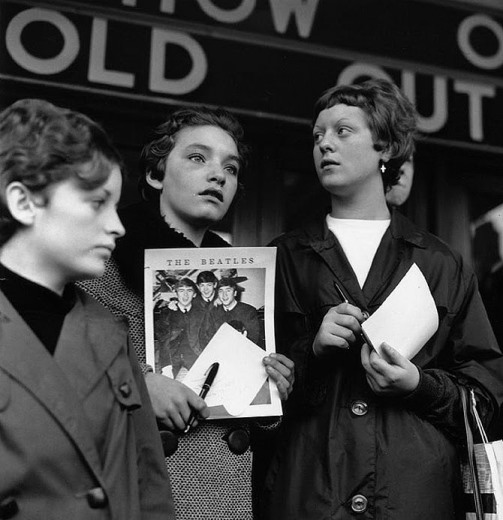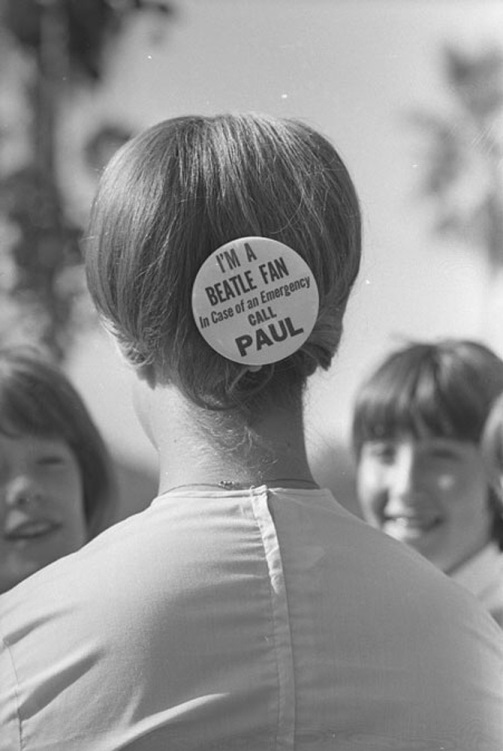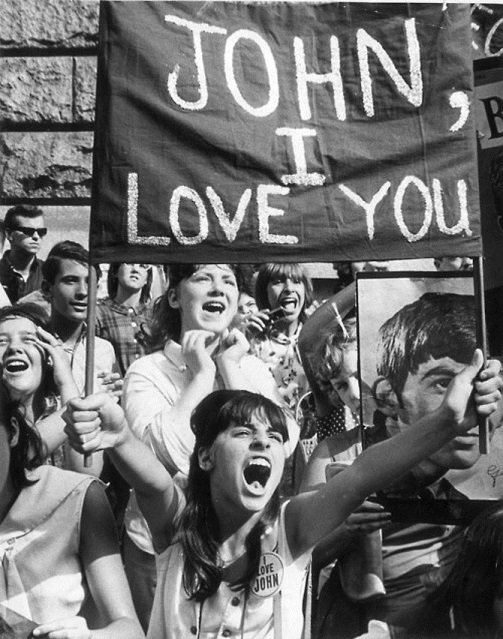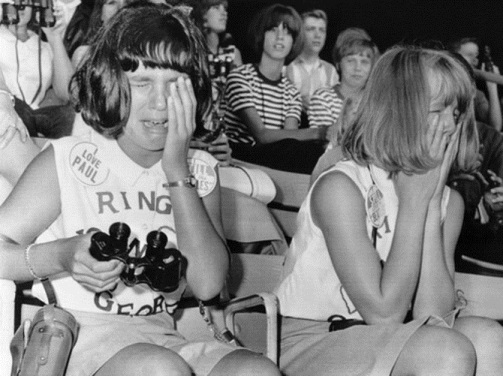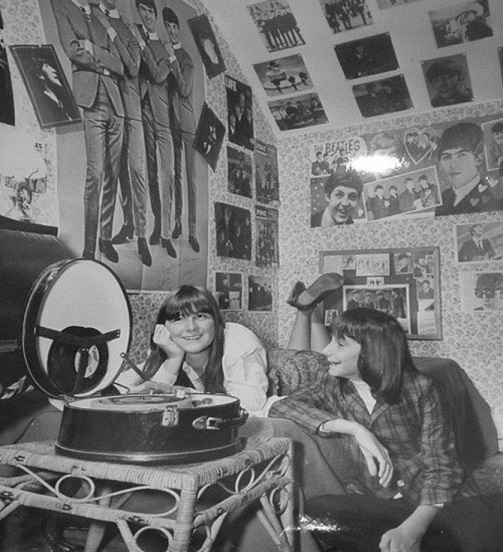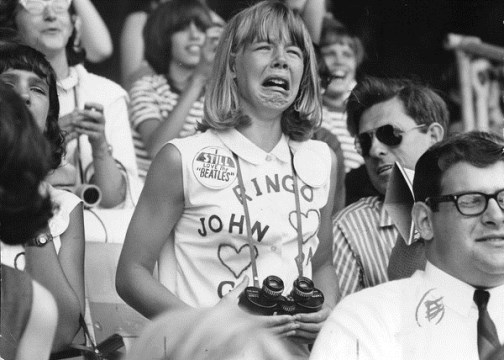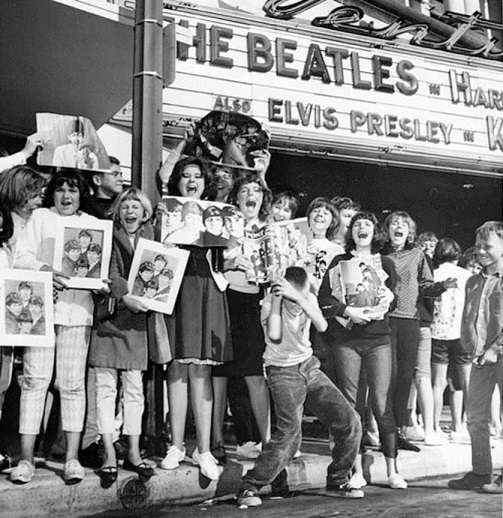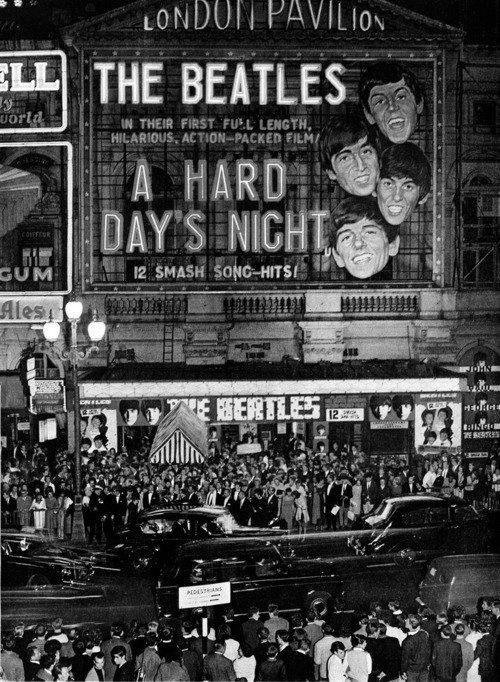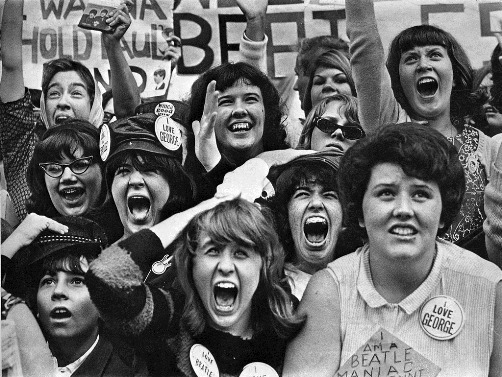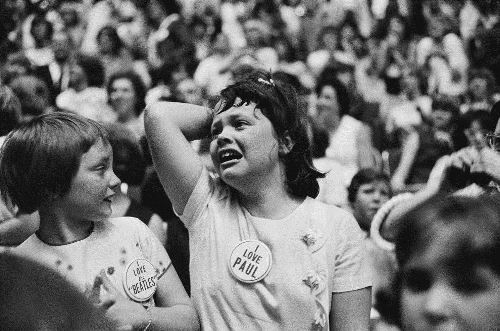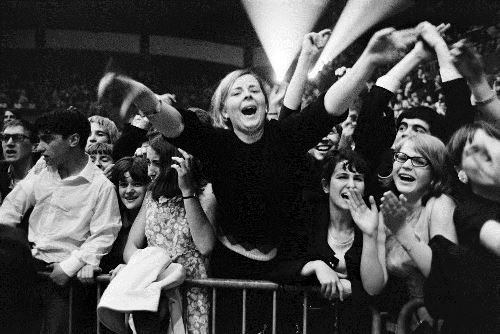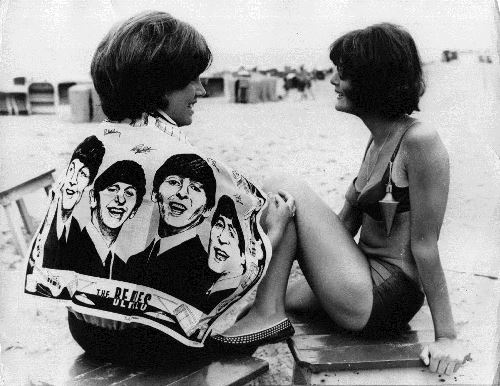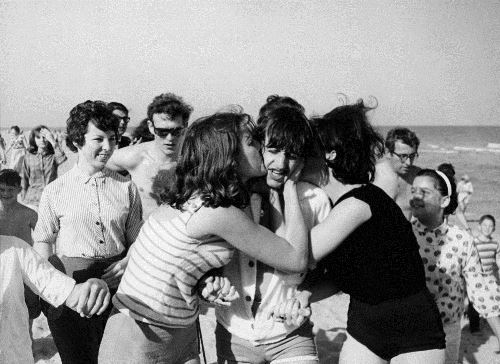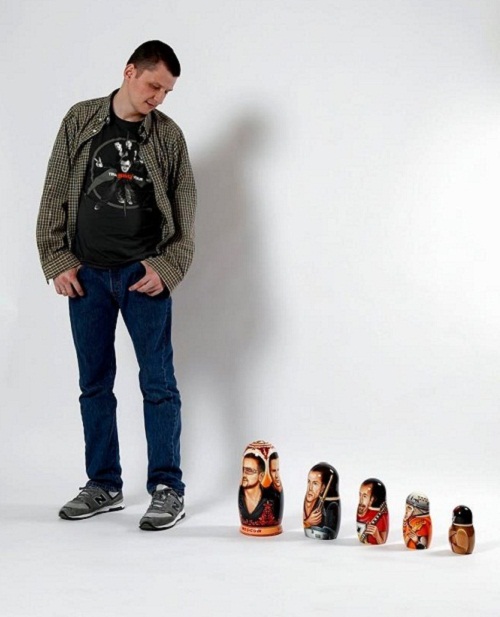Nineteen-sixties phenomenon Beatlemania
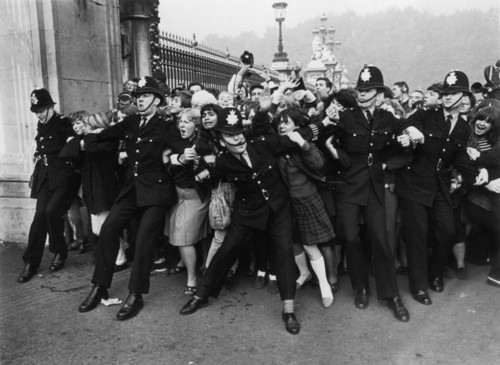
Police keeping back a crowd of young fans outside Buckingham Palace, London, as pop group the Beatles receive their MBEs. Nineteen-sixties phenomenon Beatlemania
Nineteen-sixties phenomenon Beatlemania
Noteworthy, the inception of Beatlemania considered October 13, 1963. In particular, on this very day, The Beatles performed at London’s Palladium. Despite the fact that the concert was broadcast in the program “Sunday Night At The London Palladium” all over the country, thousands of fans, mostly teenagers, crowded the hall. Filled concert hall adjacent to the street hoping to get to if not to the concert, at least just to see musicians. Throughout the concert in the hall was deafening noise, almost overlapping music. After the concert, when the musicians left the concert hall, a crowd of admirers, were waiting on the street, in an attempt to see their idols arranged stampede. Two days later, October 15, 1963 the newspaper The Daily Mirror published an article about The Beatles concert in Cheltenham. Describing the behavior of the fans they used the word “Beatlemania”. Accordingly, the term picked up by other media, became popular among people.

(L to R) Paul McCartney, who shaved off his mustache last week; Ringo Starr in printed tie; John Lennon in floral shirt and sporran; and George Harrison
Together again to mark the release of their latest LP, the Beatles strike a familiar pose but in strange garb may 29th. (L to R) Paul McCartney, who shaved off his mustache last week; Ringo Starr in printed tie; John Lennon in floral shirt and sporran; and George Harrison. The Beatles latest song, “A Day in the Life,” has been banned by the BBC. Composer McCartney says its about a dream, but the BBC thinks it might encourage drug addiction. 5/20/1967
Beatles George Harrison makes like a fan dancer as he improvises a few steps during the shooting of The Beatles’ first full-length film, ‘a Hard Day’s Night’. Amused by his antics are fellow- Beatles Ringo Starr (left) and John Lennon (right). The girls, unidentified, were members of the cast of the United Artists’ comedy. The mop-topped singers kept cast and technicians alike in a constant state of uproar as they cavorted on the London set.
Nevertheless, the phenomenon of Beatlemania appeared earlier. Already during the spring and summer concerts in 1963 The Beatles fans and especially fans accompanied their performance deafening shrieks and cries, rushed to the scene, wept and fainted.
After The Beatles in February 1964 came on tour to the U.S., it became apparent that Beatlemania stepped overseas. Beatlemania soon were extended to other countries, including the USSR.
Her Majesty the Queen inducted the Beatles as Members of the British Order on October 26, 1965. This was not only the climax of Beatlemania, but a symbolic moment in history, bridging the realms of high and low culture. The other great honor of the Beatles’ career was the invitation to appear on the world’s first global broadcast, on June 25, 1967.
The Beatles wrote ‘‘All You Need Is Love’’ for the occasion, and played it live for an estimated 350 million viewers. Noteworthy, allowed to represent England for the world. However, when Paul had announced a week earlier that he had taken LSD, the BBC had recently banned radio play of ‘‘A Day in the Life,’’ and the whole world was scouring Sgt. Pepper for subversive messages. These two honors reveal the Beatles as unifiers, not dividers.
One of their greatest achievements was to resonate across boundaries and appeal to multiple generations and classes, to represent the counterculture while winning the respect of the establishment. Although they started as tough, leatherclad teddy boys, they achieved much more by working within the mainstream, creating rather than tearing down, combining meticulous skill with daring innovation. This was achieved by a blessed union: the reckless irreverence of John Lennon and the diplomacy, dedication, and craftsmanship of Paul McCartney.
—Douglas Cooke
Nineteen-sixties phenomenon Beatlemania
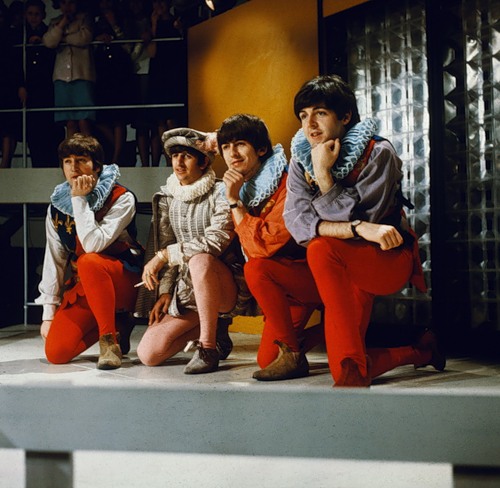
In Around the Beatles scene. During the film the singing quartet do a take-off from Midsummer Night’s Dream
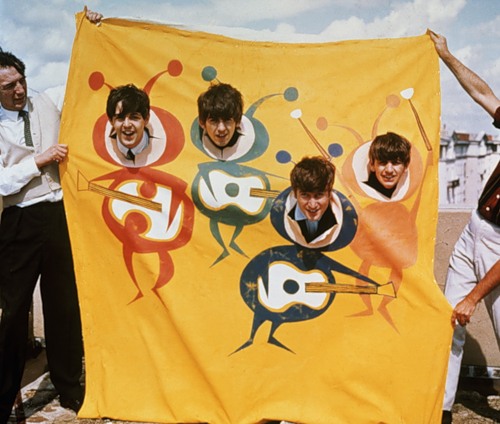
Poking smiling faces out of a banner drawn with beatle bodies holding guitars in the early part of their band’s career
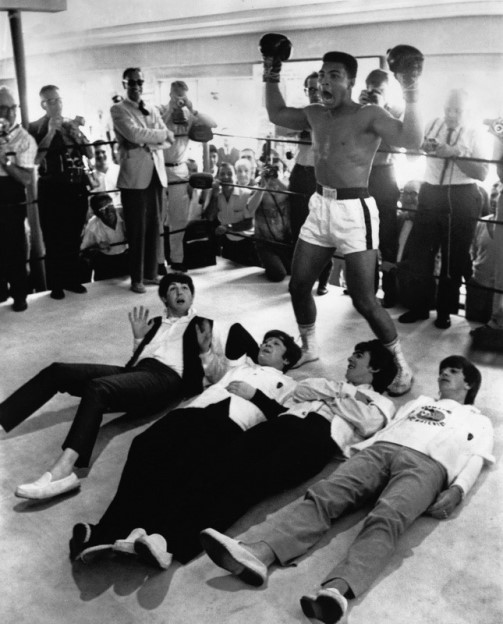
Posing with the world heavyweight title contender Cassius Clay, better known as Muhammad Ali, during a visit to one of his training sessions in Miami
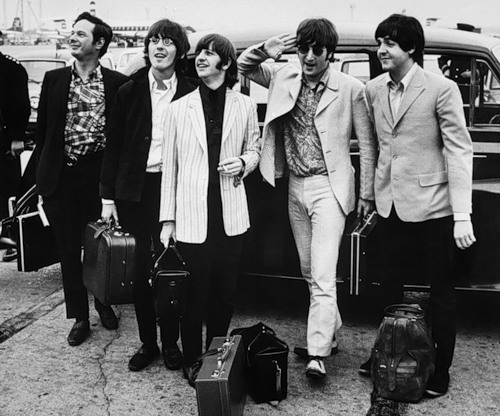
With their manager, Brian Epstein, arriving in London where a crowd of two hundred fans welcome them

One half of the Beatles singing group, George Harrison and John Lennon, are shown aboard their plane here prior to taking off for London, England
kellycaleche.livejournal.com


